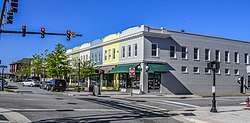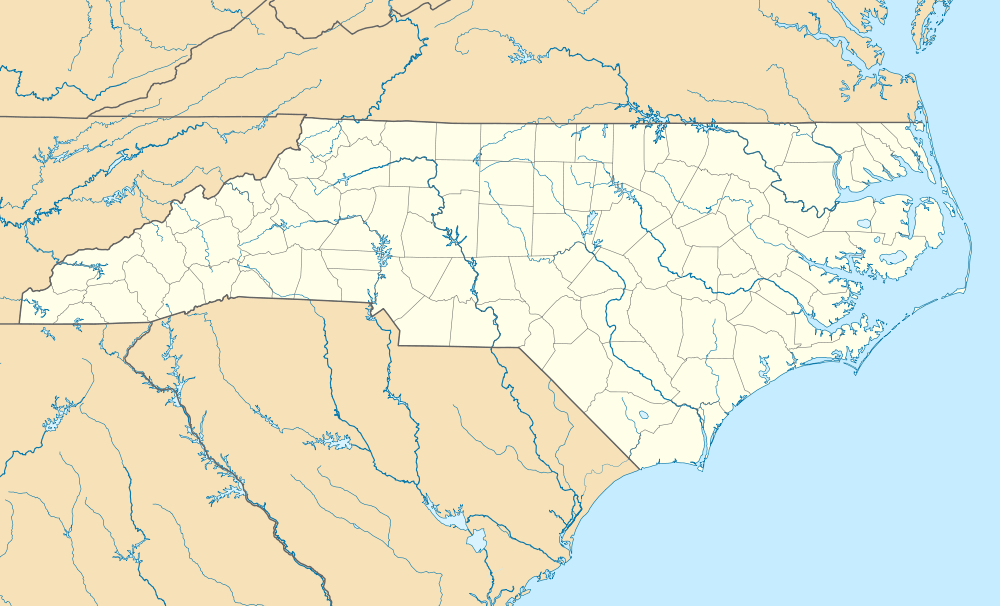Rocky Mount Central City Historic District
Rocky Mount Central City Historic District is a national historic district located at Rocky Mount, Edgecombe County and Nash County, North Carolina. The district encompasses 166 contributing buildings in central Rocky Mount. It includes a variety of industrial, commercial, residential, and institutional buildings dating from the late-19th through mid-20th centuries. Notable buildings include the Firestation No. 2 (1924), Union Bus Station (1951), the Railway Express Agency Building (c. 1930), Memorial Hospital (1937), Church of the Good Shepherd (1877), Atlantic Coastline Railroad Station (1903-1916), Imperial Tobacco Company Processing Plant (1903-1923), S. H. Kress and Company (c. 1913), Belk-Tyler (c. 1905, 1915, 1920, 1945), Grand Theater (c. 1912, 1930s), Manhattan Theater (c. 1935), Holy Hope Episcopal Church (1910s), and Summerlin House (1895).[2]
Rocky Mount Central City Historic District | |
 Station Square commercial block off Main Street | |
  | |
| Location | Roughly bounded by Robinson and Atlantic Aves., Holly and Franklin Sts.; also portions of 26 blocks on Main, Washington, Church, Battle, Hammond, Hill, Howard, Ivy, Gay, Goldleaf, and Thomas Sts., Rocky Mount, North Carolina |
|---|---|
| Coordinates | 35°56′50″N 77°47′26″W |
| Area | 108 acres (44 ha) |
| Architect | Stout, John Christie; Et al. |
| Architectural style | Late 19th And 20th Century Revivals, Classical Revival, Queen Anne, Modern Movement, Commercial |
| NRHP reference No. | 80002826, 09000659 (Boundary Increase and Decrease)[1] |
| Added to NRHP | June 19, 1980, August 27, 2009 (Boundary Increase and Decrease) |
It was listed on the National Register of Historic Places in 1980, with a boundary increase / decrease in 2009.[1]
References
- "National Register Information System". National Register of Historic Places. National Park Service. July 9, 2010.
- Heather Fearnbach (December 2008). "Rocky Mount Central City Historic District: Boundary Increase and Decrease and Additional Documentation" (pdf). National Register of Historic Places - Nomination and Inventory. North Carolina State Historic Preservation Office. Retrieved 2014-11-01.

